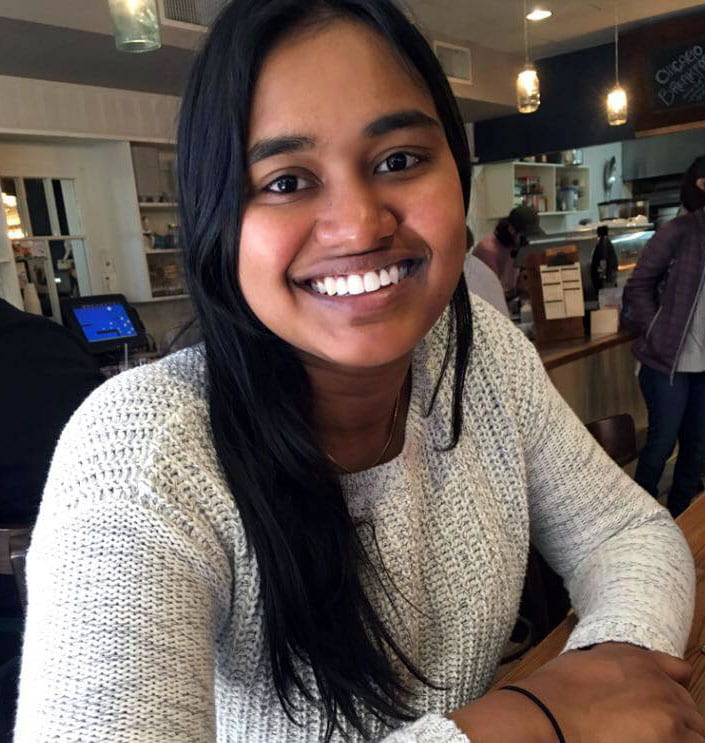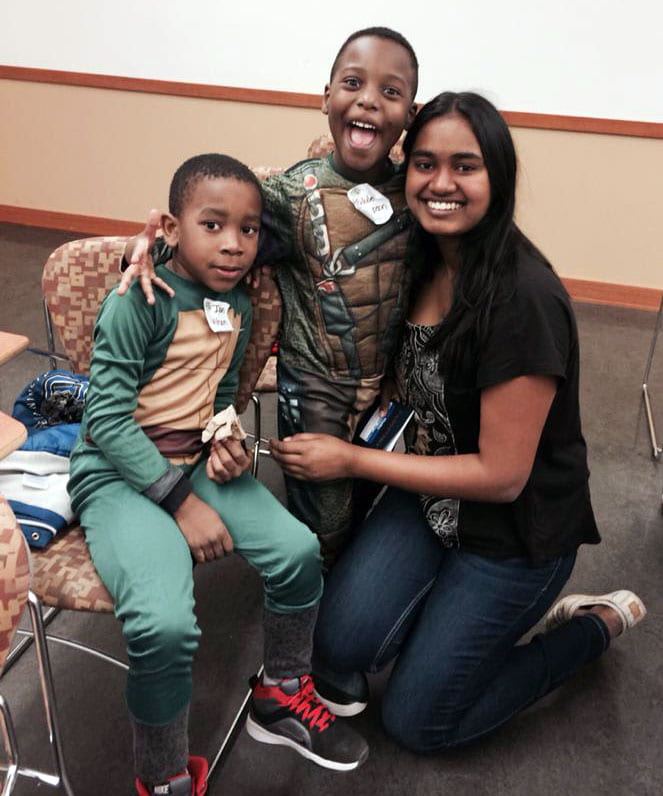K-12 Connections is a partnership of the Gephardt Institute for Civic and Community Engagement, the Institute for School Partnership, and the Office of Government and Community Relations. It connects the Washington University community with volunteer opportunities involving high-needs urban school districts in the St. Louis area, primarily through classroom field trips to campus for enrichment experiences and exposure to college life. During the 2015-2016 academic year, K-12 Connections hosted 21 field trips, serving 1,288 students from 22 schools.
Washington University students are invited to become K-12 Ambassadors who support the K-12 Connections program by facilitating field trips, sharing information at events, and more. Ambassadors receive hands-on experience interacting with students from across the region. They also receive training and access to enrichment programs to contextualize their experiences and empower them to foster meaningful change in K-12 education.
Aysswarya Manoharan, a junior majoring in psychology in the College of Arts & Sciences, has been a K-12 Ambassador since her first year. She recently offered insights on how the program works and how it has impacted her WashU experience.
Aysswarya’s primary role as an Ambassador has been to facilitate field trips on campus. School groups request tours and other activities to meet a variety of learning outcomes, and the K-12 Connections team customizes each experience to meet the group’s objectives. Once an itinerary is finalized, staff look to the Ambassadors as volunteers to lead the program.
Of the field trips she has supported, Aysswarya says, “I’ve led groups interested in sustainability, arts and culture, and STEM programs. There are a wide variety of interests.” She has also learned the importance of “being aware of each school group’s needs and listening to what they want rather than what you think they want.”
Leading school group visits has allowed Aysswarya to explore new parts of campus that she was otherwise unlikely to discover, including “the magic of the Kemper [Art Museum]” and the lesser-known Matthew A. Grossman Museum, a geology collection in Rudolph Hall.
Ambassadors are given training to help hone their skills when leading groups and to gain context about current challenges in education. Aysswarya appreciated this part of the program, noting that the Ambassadors listened to and discussed the two-part This American Life podcast “The Problem We All Live With” with a focus on modern-day school segregation and a St. Louis area school district. This aspect of the Ambassadors program taught her about “interacting with a community critically rather than passively.”
K-12 Ambassadors also have the opportunity to volunteer off campus. Aysswarya has traveled to science fairs and other events throughout the region to share information and offer demonstrations of STEM concepts. Aysswarya enjoys that these events allow her to interact with students in a different context and help the younger ones engage with subjects like science for the first time.
K-12 Ambassadors offer an important connection between K-12 students and Washington University, and both communities benefit from strengthening and expanding this relationship.
Washington University students interested in volunteering as a K-12 Ambassador can learn more and apply here.
May 2017 | by, Jennifer Thomas
Original story published on website of Gephardt Institute for Civic & Community Engagement

